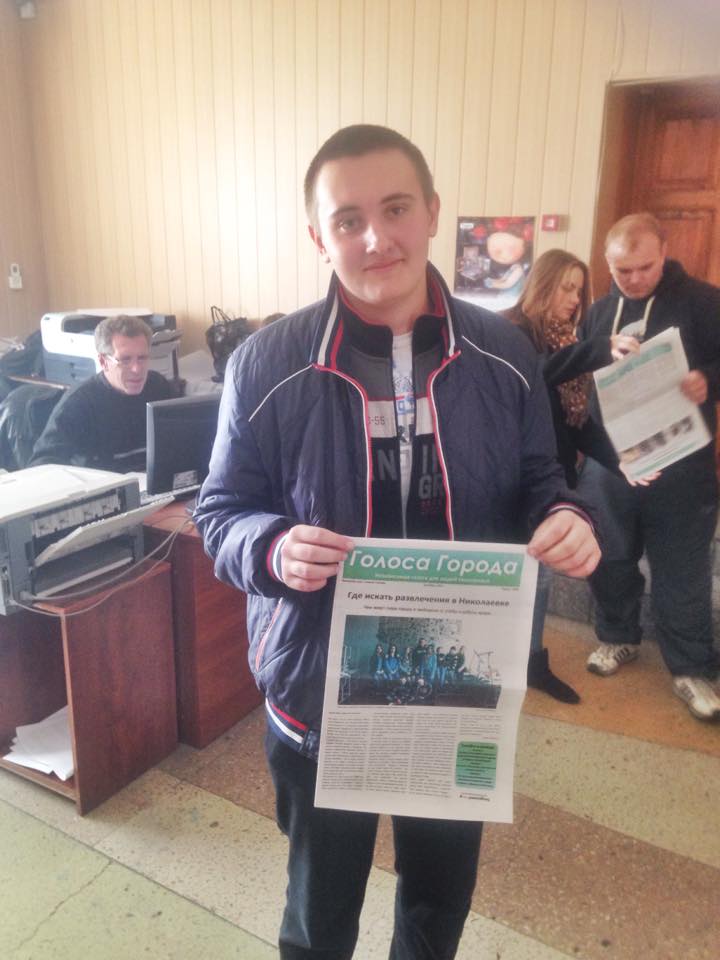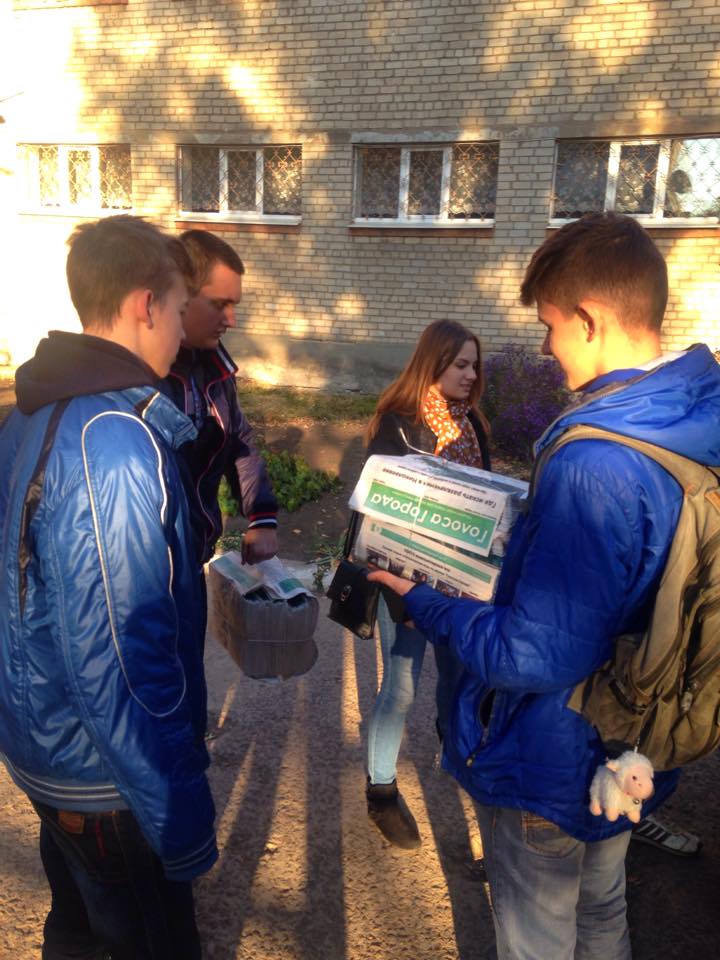Ukraine’s Euromaidan revolution Ukraine bore many consequences. Some are disputable, some are visible, and some – not as much as was expected. However, at least one advantage of this revolution is doubtless. People who went through Maidan will never be the same again, those who once realized what civil society is will not be able to pretend that they did not have this experience. Volunteers are working in different fields, sometimes replacing the government. But how can this drop in the ocean principle be implemented in the area of media?
“Ukrainian propaganda works in the same way as Russian propaganda” is an opinion with increasing popularity among European audiences. However, it has a little in common with reality. First of all, if talking about Europe, Ukraine simply does not have so many resources to make its content so popular there. Second, the internal media environment is quite different in Ukraine. Comparing to Russia, where the main media in that way or another are controlled by the state, Ukraine’s media outlets are controlled by multiple “kings” who with their help are dealing with their own problems:
- Inter is strongly associated with Serhiy Lyovochkin, former head of the Presidential Administration of Ukraine for disgraced ex-President Viktor Yanukovych and the oligarch Dmytro Firtash;
- Channel Ukraine – with Rinat Akhmetov;
- 1+1 – with Ihor Kolomoyskyi;
- ICTV – with the Pinchuk family.
When all these guys have things to say to each other, nobody can stop them. Deputies from parties supported by the opponents will be bad mouthed. So one cannot say that this propaganda is pro-Ukrainian, it is rather can be called a propaganda which serves to the interest of particular political force, most often this interest is connected to the electoral process and is aimed only at the Ukrainian viewer. Local problems and achievements usually are used only as an instrument of the big picture needed for serving the interests of the owner.
The situation is even worse with the printed media. According to the survey conducted in 2014, in the last year 42% of Ukrainians did not read a single book. Only 57.9% of respondents read a text longer than 100 pages last year. 60-77% of Ukrainians named that there is no need in reading as the main reason. Also, though hard to imagine, there are towns in Ukraine without local press at all. Local issues are kept uncovered, and the dialog which is so needed in local communities in today’s circumstances is not established. People are left with rumors, guessing, and national scale problems.
Is the situation helpless? One might say that the media business is enormously expensive, so there is no alternative. Is it really true, and is there any hope for implementing civic society principles in the local press?
In the middle of October 2015 in Mykolayivka, a town near the Ukrainian-controlled city of Sloviansk in Donetsk Oblast, the first issue of the newspaper “Voices of the City” had been published. So far it is the only city newspaper in Mykolayivka. It was made by about 20 pupils of the local school №3, two German, and three Ukrainian journalists.
Before the war, the population of the town was more than 15 thousand people (in the summer of 2014 the city suffered bombings). During 40 years of Soviet times, Lenin’s Word was the only local newspaper (after 1991, it was renamed into Energy). Later the newspaper Our Generation published by the local thermoelectric power station replaced it as the only representative printed press in Mykolayivka, if such a term is applicable to a corporate newspaper. In August 2013, a RoDnik + newspaper appeared, but soon left the scene after war after the city became a battlefield between Ukrainian forces and the Russian-separatist hybrid army.
After Sloviansk’s liberation by the Ukrainian army in autumn 2014, volunteers came to the city. They brought materials to restore school №3 and held different workshops and lessons to facilitate for communication. Among the volunteers was the German theater director Georg Genoux. Later he created the site Hands and Hearts for Ukraine to encourage Europeans to take part in such volunteer missions in Eastern Ukraine. That is how the German journalist Daniel Schultz from the Taz newspaper found out about the city. He was preparing the material about local school children and about life in the town that experienced war. After being in Mykolayivka Daniel decided to found a local newspaper there.
The preparation of the first issue took three weeks, two old computers, 20 students from grade 8 to 11, and four “adult” journalists.
The first week was spent on trainings on journalism and topic discussions. The rest of the time – on articles and preparing the layout. Circulation of the newspaper: 1000 eight page-long copies. The students also created a Facebook page for it.
Although the theme of the first issue was entertainment in Mykolayivka, almost all materials are focused on what to change and how to do the city a better place to live.
“We will make this newspaper for you, the residents of the city, so that you will be aware of the latest news of Mykolayivka and the World in general. We write to create the first independent and really interesting newspaper in Mykolayivka,” a quote from the article on the front page written by a newspaper correspondent, photo editor and 11th grade student Alina Kobernik.
The newspaper is expected to be a product of only school students work, so now they create the second issue by themselves. The only open question is financing. The first issue cost UAH 2500 to print, provided by the German fund Taz Panterstiftung. The funding of the second issue is discussed now.
So far it is hard to predict whether such an example of self-organization in the field of media can be implemented in other places. Of course, it’s not perfect. First, school students are not professionals. Even if they would be, they are not paid, which means that there will be no chance to professional local journalists to earn at least something. But if to look on the example of the newspaper in Mykolaivka, it’s truly needed there. “In this city, everyone knows each other for such a long time that we never ask details. Who are these people and what are they doing?” is written in the article by the chief editor of the newspaper, 9th grade student Viktoriya Horodinska. Students distributed the first issue by themselves. 1,000 copies has not been enough for a city with the population over 10,000, so people who have read the newspaper were given it to others.
It is a small and simple example of the solution for the local media problem in Ukraine. The problem is big, especially in the East where people are left alone with prejudice, ambivalence, and unanswered questions. Usually the answers come from those who want to manipulate, but not to help, so the real needs of people are left unspoken.











